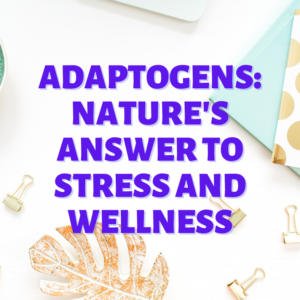You often hear about emotional repression in self-help circles, but what does it actually mean? It’s essentially pushing uncomfortable feelings deep down, hoping they’ll vanish. Unfortunately, they tend to resurface, much like that overflowing box of holiday decorations, and not always pleasantly. This repression can manifest in many ways, impacting both mental health and physical well-being.
Table of Contents:
- Understanding Emotional Repression
- The Impact of Emotional Repression
- Unmasking and Addressing Emotional Repression
- Conclusion
Understanding Emotional Repression
Emotional repression, a common defense mechanism, often starts in childhood. Challenging experiences, like trauma or difficult family dynamics, teach us that expressing certain emotions isn’t safe. While initially protective, these defense mechanisms can become problematic in adulthood. Consider the scenario where you suppress your frustration during an argument right before going to an important work meeting. As adults, temporarily suppressing sadness or anxiety is one thing; complete repression is a different beast entirely.
Repression operates outside of our awareness. Years after suppressing an emotion, something seemingly innocuous triggers a tidal wave of that repressed feeling. This can leave us perplexed, confused about the cause. Recognizing and dealing with repressed feelings becomes essential to healing.
The Impact of Emotional Repression
Though emotional reactions don’t directly cause the flu, studies suggest repression affects physical and mental health. A 1990 study correlated repressing emotions and decreased immune function, making us more susceptible to illness. A 2016 University of Arizona study suggests a possible connection between regulating emotions and physical symptoms. For those seeking addiction recovery or support, understanding the role of repressed emotions is a step in the right direction.
Repressed Emotions and Physical Symptoms
Bottling up negative emotions links to stress, anxiety, depression, and chronic pain. This may explain why childhood trauma increases the risk of later health issues. Repressing anger, specifically, has potentially serious consequences. Research indicates a higher risk of cardiovascular disease for those who struggle to express anger. Unresolved anger can manifest into gastrointestinal issues like irritable bowel syndrome or ulcers.
Psychological Signs of Emotional Repression
Emotional repression manifests in several ways:
- Feeling numb or emotionally blank. It’s a low simmering tension, a sense that something isn’t right, even if you can’t pinpoint why.
- Memory problems, particularly around difficult events or conversations. Forgetting might offer temporary peace, but repression sabotages long-term wellness. It limits self-awareness by affecting our emotional regulation.
- Discomfort with others’ emotions. You might find it strange when others openly express sadness, anxiety, or fear.
- People-pleasing behaviors. Constantly seeking approval and prioritizing others’ happiness over your own feelings. While being kind is important, true emotional repression dismisses personal needs. It puts one in a cycle where emotional wellness depends on what other people say, which can even lead to radical recovery later on in life.
- Self-sabotage, potentially leading to anxiety, chronic pain, addictions, or codependencies.
Unmasking and Addressing Emotional Repression
Recognizing Emotional Repression in Yourself
| Feeling | Behavior |
|---|---|
| Numbness or emotional blankness | Difficulty discussing important matters |
| Unexplained nervousness, stress, or low mood | Challenges forming close relationships |
| Tendency to forget things | Inability to understand or validate others’ feelings |
| Discomfort when others share their feelings | Passive-aggressive behaviors |
| Excessive calmness or cheerfulness | Substance use, excessive TV or social media |
Others might see you as the “calm and chill” friend. While seemingly positive, this can mask underlying emotional repression, impacting long-term well-being. The outward appearance hides internal conflicts between true feelings and outward behaviors.
Releasing Repressed Emotions
Releasing repressed emotions improves your feelings and relationships. Men’s health, particularly, often overlooks the importance of emotional expression. This often goes hand in hand with emotional repression and creates unhealthy emotions. A mental health professional can provide valuable support.
Emotionally Focused Therapy (EFT) views emotional expression as vital for relationships and identity. The Kiloby Center is an example of a resource for information and workshops focused on various healing modalities.
Here are some strategies:
- Regular self-check-ins. Ask, “How am I feeling right now?” Journaling or creative expression can be therapeutic, offering insights into why you repress emotions. It unveils the causes of subconscious behavior.
- Use “I” statements. “I feel nervous” or “I feel confused” externalizes feelings, making emotional regulation easier.
- Start by naming positive emotions. This is less challenging than naming negative ones and helps foster connection with your feelings. You need to know the health conditions before naming negative ones.
- Avoid negative self-judgment, regardless of the emotion. Treat emotions as valuable data, not shortcomings.
- Make sharing a regular activity. Talk about difficult emotions, perhaps with a therapist. Explore how past experiences, such as childhood trauma or involvement in breast cancer recovery programs, might contribute to current emotional patterns. This increases awareness and normalizes discussing feelings.
Conclusion
Emotional repression is complex. Untangling its effects takes time and often professional support. If you suspect emotional repression influences your communication or behavior, look for recurring patterns. Journaling, art, or other forms of expression can help uncover repressed feelings. Finding what works for you is key to emotional health, addressing your specific dynamics related to emotional repression.

